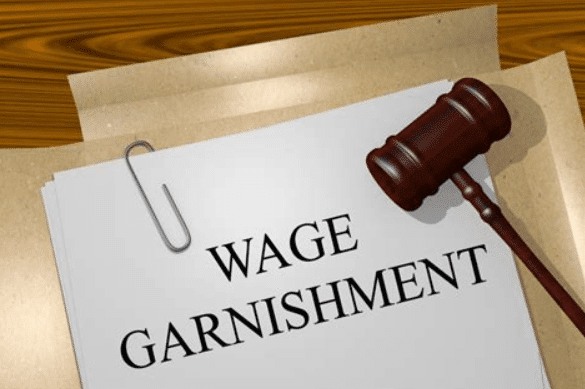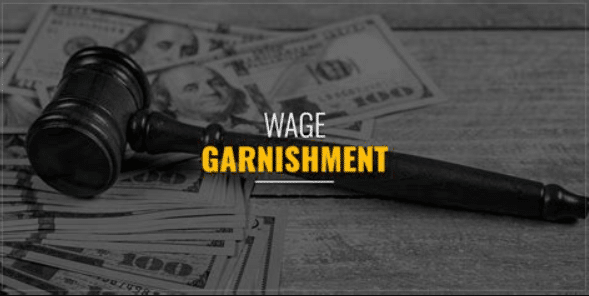In general, SSI cannot be garnished to collect money on a debt owed. However, your certain types of Social Security income can be garnished if you owe taxes, child support, alimony, or a federal student loan.
If your primary source of income is Social Security disability benefits, you may be worried, and rightfully so, about any outstanding debts that you may have. You may be concerned about earning a living while you are physically incapacitated if your Social Security disability benefits are garnished to pay off your debts.
The question is, can your creditor use a court order to garnish your Social Security disability benefits to settle your debts? To answer your question, you will need to understand the law and your rights before making the best plan to manage your debts. This article will do just that.
Protect your benefits. Respond to debt collection lawsuits with ZumaZip.
What are Social Security benefits?
The Federal Social Security Administration gives out financial benefits called Social Security benefits to eligible American citizens based on their inability to earn income to sustain themselves and their families due to disabilities or retirement.
There are three forms of Social Securities. They include:
- Supplemental Social Security Income (SSI): These are funds given to eligible disabled adults over 65.
- Social Security Disability Insurance (SDI): Funds given to physically disabled adults who cannot work because of their condition.
- Social Security Retirement Benefits (SRB): Income for eligible retired people and their families.
The federal government makes these payments to beneficiaries directly into their bank accounts or a government-issued credit card.
Can SSI be garnished?
No, SSI cannot be garnished, even for debt connected to taxes, child support or alimony, or federal student loans.
So, if you’re being sued for credit card debt, your SSI is protected from wage garnishment. However, other Social Security income may be garnished, like SSDI, for taxes, child support and alimony, or federal student loans.
Are your Social Security Benefits safe from creditors?
Legally speaking, any person who takes out a loan or credit is obligated to pay them back as per the terms of the lending agreement. If the person fails to pay the loans, the creditors may sue them to recover their money.
A ruling in favor of the creditors may result in either of the following judgments:
- Bank account levies: The court orders the debtor’s bank to withdraw money from their account without requiring their permission to pay for the loan
- Garnishments: The court orders a portion of the debtor’s income or property be directly paid to the creditors without passing through the debtor (except for child support, entitlements, alimonies, and benefits)
There are some cases where neither of these two judgments applies in a case. In that case, the court may render the debtor as being judgment proof.
Make the right affirmative defenses with ZumaZip.
What does it mean to be judgment proof?
When a court cannot pass a garnishment or bank account levies on your case, then you are judgment proof. This situation only occurs if the court is convinced of the following:
- You have very little income
- You have no wages to garnish
- You only have legally protected assets
- Your main source of income is the federal Social Security benefits
In situations where individuals receive federal government Social Security benefits, creditors or collection agencies typically cannot obtain a garnishment order or bank account levies. However, complications may arise if these benefits are combined with other private retirement benefits. In such cases, the court may order a portion of the combined income to be allocated towards debt repayment.
To avoid this scenario, it’s advisable to keep Social Security benefits, alimonies, and other retirement benefits separate.
It’s important to dispel the misconception that being judgment proof relieves individuals of their debt obligations. While a judgment proof ruling indicates a lack of sufficient assets and income to repay debts, it does not absolve individuals of their financial responsibilities.
Creditors may continue to pursue debt collection efforts through various means, including calls, emails, and letters, despite the judgment proof status. Therefore, maintaining awareness of credit reports and credit scores remains crucial, as these factors can impact financial standing and future credit opportunities.
Use ZumaZip to respond to a debt collection lawsuit in 15 minutes.
Your social security may be garnished for taxes, child support, alimony, or federal student loans
There are exceptions to being deemed “judgment proof.” Essentially, the state and federal governments may garnish your Social Security or Social Security Disability Insurance (SSDI) benefits if you owe them without needing a court order to do so. The following debts can lead to the garnishment of your Social Security benefits:
Taxes due to the Internal Revenue Services (IRS)
It’s important to be aware that the Internal Revenue Service (IRS) has the authority to collect a portion of your monthly entitlement from Social Security benefits to settle outstanding taxes, without requiring a court order. Specifically, the IRS can garnish a portion of your Social Security Disability Insurance (SSDI) benefits at a rate of up to 15% to satisfy overdue tax obligations.
Prior to initiating garnishment, the IRS is required to provide written notification to inform you of their intention to collect outstanding taxes from your Social Security benefits. This notification ensures that you are aware of the IRS’s plan to garnish a portion of your benefits and provides an opportunity to address any concerns or disputes regarding the tax debt.
Understanding your rights and obligations regarding tax debt and Social Security benefits is essential to navigate this process effectively. If you receive notification from the IRS regarding garnishment of your Social Security benefits for tax debt repayment, it’s advisable to seek assistance from a tax professional or legal advisor to explore your options and ensure compliance with IRS regulations, as outlined in Title II of the Social Security Act.
Child support or alimony
It’s crucial to note that if you owe child support or alimony, the court has the authority to order a portion of your Supplemental Security Income (SSI) to be withheld to cover these obligations. This means that if you are receiving SSI benefits and have outstanding child support or alimony payments, the court may direct a portion of your SSI benefits to fulfill these financial responsibilities.
This process ensures that individuals fulfill their legal obligations to support their children or former spouses, even if they are receiving SSI benefits. It’s essential to comply with court orders related to child support or alimony payments to avoid potential legal consequences and ensure the well-being of dependents.
If you have concerns or questions about how child support or alimony obligations may impact your SSI benefits, it’s advisable to consult with a legal professional who can provide guidance based on your specific circumstances. Understanding your rights and responsibilities is essential for maintaining financial stability and compliance with legal obligations, as outlined in 42 U.S. Code § 659.
Federal Student Loans
It’s important to be aware that Federal Student Loan Servicers have the authority to garnish a portion of your Social Security benefits to fulfill outstanding student loan obligations, without requiring a court order. This means that if you owe student loans, your Social Security benefits may be subject to garnishment to cover these debts. Additionally, if you have co-signed a student loan for someone else and they fail to repay it, you may also find your Social Security benefits garnished to cover the debt.
This situation can particularly impact older individuals who co-sign student loans for younger borrowers who subsequently default on their payments. In such cases, the burden of repaying the student loans may fall on the co-signer, potentially leading to garnishment of Social Security benefits.
Understanding your rights and responsibilities regarding student loan debt is essential to protect your financial well-being, especially if you rely on Social Security benefits as a primary source of income. Seeking assistance from student loan servicers and exploring repayment options may help alleviate the impact of student loan obligations on your Social Security benefits.
What happens to your Social Security benefits if you file for bankruptcy?
If you ever received too much money for your Social Security benefits from the federal government, they may garnish your benefits to recover their money back. This option is very common with the Social Security Income beneficiaries.
For individuals receiving disability benefits, Chapter 7 bankruptcy can offer relief from overwhelming debt burdens. This form of bankruptcy eliminates outstanding debts, including credit card debts and medical expenses, providing a fresh financial start. The process typically concludes within 90 days following approval, offering swift resolution to financial challenges.
It’s crucial to segregate Social Security benefits from other income sources to avoid complicating the bankruptcy process. Social Security benefits are considered exempt from bankruptcy proceedings when kept separate from other funds. This exemption protects these vital benefits from being included in debt repayment obligations.
Filing for bankruptcy may be the most suitable option for managing debt for those relying solely on Social Security benefits as their primary source of income. Importantly, creditors cannot obtain court orders to garnish Social Security benefits when they serve as the sole income source. However, federal or state governments may garnish these benefits without a court order for specific obligations such as taxes or student loans.
In essence, Social Security disability beneficiaries are typically considered judgment-proof, offering a layer of protection against wage garnishment or bank levies. This underscores the importance of understanding and safeguarding your rights when managing debt while receiving disability benefits.
What is ZumaZip?
ZumaZip is a convenient solution designed to streamline your response to a debt collection lawsuit. Here’s a breakdown of what you can expect when you use ZumaZip:
Firstly, you’ll access our user-friendly web application, which guides you through the process step by step. You’ll be prompted to answer a series of questions related to your specific situation. Once you’ve completed the questionnaire, you have the option to either print out the finalized forms and mail them to the appropriate courts yourself, or you can opt to utilize ZumaZip’s services to file them on your behalf. Additionally, if you choose this option, an attorney will review your document for added peace of mind.
If you’re seeking guidance on how to effectively respond to a debt collection lawsuit, ZumaZip can provide the assistance you need. Feel free to explore our FAQs for more information on what ZumaZip has to offer.
What if I haven’t been sued yet?
If you’ve only received a collections notice, but not a lawsuit, the best way to respond is with a Debt Validation Letter. When a debt collector contacts you in any way, whether it’s by phone or mail, you can respond by formally requesting a debt validation with a Debt Validation Letter . This letter notifies the collector that you dispute the debt and forces them to provide proof you owe the debt. They can’t call you or continue collecting until they provide validation of the debt. This flowchart shows how you can use a Debt Validation Letter to win.
Get started with a Debt Validation Letter here.
How to Answer a Summons for debt collection in all 50 states
Here’s a list of guides on how to respond to a debt collection lawsuit in each state:
- Alabama
- Alaska
- Arizona
- Arkansas
- California
- Colorado
- Connecticut
- Delaware
- Florida
- Georgia
- Hawaii
- Idaho
- Illinois
- Indiana
- Iowa
- Kansas
- Kentucky
- Louisiana
- Maine
- Maryland
- Massachusetts
- Michigan
- Minnesota
- Mississippi
- Missouri
- Montana
- Nebraska
- Nevada
- New Hampshire
- New Jersey
- New Mexico
- New York
- North Carolina
- North Dakota
- Ohio
- Oklahoma
- Oregon
- Pennsylvania
- Rhode Island
- South Carolina
- South Dakota
- Tennessee
- Texas
- Utah
- Vermont; Vermont (Small Claims court)
- Virginia
- Washington
- West Virginia
- Wisconsin
- Wyoming
Guides on how to beat every debt collector
Hey there! Facing off against a debt collector can feel like a daunting challenge, but fear not! We’re here to help you navigate through it all with our handy guides designed to assist you in beating every debt collector you encounter. Whether you’re facing a new lawsuit or dealing with a persistent collector, we’ve got your back. Stay positive, stay informed, and let’s tackle this together!
- Absolute Resolutions Investments LLC
- Accredited Collection Services
- Alliance One
- Amcol Clmbia
- American Recovery Service
- Asset Acceptance LLC
- Asset Recovery Solutions
- Associated Credit Services
- Autovest LLC
- Cach LLC
- Cavalry SPV I LLC
- Cerastes LLC
- Colinfobur
- Covington Credit
- Crown Asset Management
- CTC Debt Collector
- Cypress Financial Recoveries
- Delanor Kemper & Associates
- Eagle Loan of Ohio
- Educap
- Estate Information Services
- FIA Card Services
- Forster & Garbus
- Freshview Solutions
- Fulton Friedman & Gullace LLP
- Harvest Credit Management
- Howard Lee Schiff
- Hudson & Keyse LLC
- Integras Capital Recovery LLC
- Javitch Block
- Jefferson Capital Systems LLC
- LVNV Funding
- Mannbracken
- Mariner Finance
- Medicredit
- Michael J Adams PC
- Michael J Scott
- Midland Funding LLC
- Mullooly, Jeffrey, Rooney & Flynn
- Mountain Land Collections
- MRS Associates
- National Collegiate Trust
- Nationstar Foreclosure
- Northstar Capital Acquisition
- NCEP LLC
- NRC Collection Agency
- OneMain Financial
- Palisades Collection LLC
- Pallida LLC
- Paragon Revenue Group
- Pinnacle Collections Agency
- PMAB LLC
- Portfolio Recovery Associates
- Provest Law
- PYOD LLC
- Reunion Student Loan Finance Corporation
- Revenue Group
- Regents and Associates
- RSIEH
- Salander Enterprises LLC
- Second Round Sub LLC
- Security Credit Services
- Sherman Financial Group
- Suttell and Hammer
- T-Mobile
- Transworld Systems
- Tulsa Teachers Credit Union
- UCB Collection
- Velo Law Office
- Velocity Investments
- Waypoint Resource Group
- Weinberg and Associates
- Wolpoff & Abramson
Settle your medical debt
Having a health challenge is stressful, but dealing medical debt on top of it is overwhelming. Here are some resources on how to manage medical debt.
- Am I Responsible for My Spouse’s Medical Debt?
- Do I Need a Lawyer for Medical Bills?
- Do I Need a Lawyer to Fight Medical Bill Debt?
- Does Bankruptcy Clear Medical Debt?
- How Much Do Collection Agencies Pay for Medical Debt?
- How to Find Medical Debt Forgiveness Programs
- Is There a Statute of Limitations on Medical Bills?
- Medical Debt Statute of Limitations by State
- Summoned to Court for Medical Bills — What Do I Do?
- Summoned to Court for Medical Bills? What to Do Next
Stop calls from Debt Collectors
Do you keep getting calls from an unknown number, only to realize that it’s a debt collector on the other line? If you’ve been called by any of the following numbers, chances are you have collectors coming after you, and we’ll tell you how to stop them.
- 800-390-7584
- 800-289-8004
- 800-955-6600
- 877-366-0169
- 877-591-0747
- 800-278-2420
- 800-604-0064
- 800-846-6406
- 877-317-0948
- 888-899-4332
- 888-912-7925
- 202-367-9070
- 502-267-7522
Other wage garnishment resources
- Bank Account Garnishment and Liens in Texas
- Can I Stop Wage Garnishment?
- Can My Wife’s Bank Account Be Garnished for My Debt?
- Can Payday Loans Garnish Your Wages?
- Can pensions be garnished?
- Can Private Disability Payments Be Garnished?
- Can Social Security Disability Be Garnished?
- Can They Garnish Your Wages for Credit Card Debt?
- Can You Stop a Garnishment Once It Starts?
- Guide to Garnishment Limits by State
- How Can I Stop Wage Garnishments Immediately?
- How Long Before a Creditor Can Garnish Wages?
- How Long Does It Take to Get Garnished Wages Back?
- How to Fight a Wage Garnishment
- How to Prevent Wage Garnishment
- How to Stop a Garnishment
- How to Stop Social Security Wage Garnishment
- How to Stop Wage Garnishment — Everything You Need to Know
- New York Garnishment Laws – Overview
- Ohio Garnishment Laws — What They Say
- Wage Garnishment Lawyer
- What Is Wage Garnishment?



































